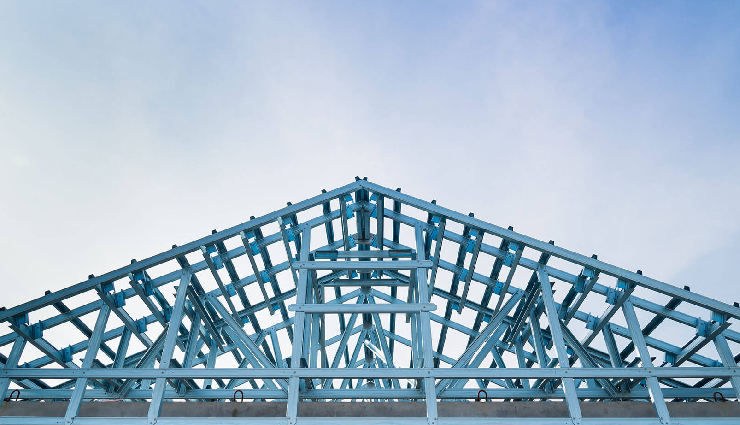Benefits Of Choosing Steel Roof Trusses For Your Next Project
By: Priyanka Maheshwari Mon, 04 Mar 2024 10:49:44

When it comes to contemporary construction, the choice of materials for any component of a building is pivotal. This is especially true for the skeletal framework that holds a structure together. When considering options for roofing frameworks, one material stands out for its exceptional qualities - steel roof truss, a durable metal known for its strength and resilience. Opting for this metal-made roofing framework offers numerous advantages that can benefit a construction project in numerous ways. This article delves into the benefits of selecting this specific type of framework for your next endeavor.
-1709572535-lb.jpg)
Enhanced Durability and Longevity
One of the foremost advantages of metal frameworks in construction is their remarkable durability. Unlike traditional materials that may weather, rot, or become susceptible to insect damage over time, these structures are designed to withstand harsh environmental conditions. Their resistance to rust, corrosion, and fire makes them ideal for regions prone to extreme weather, ensuring that your construction lasts for decades with minimal maintenance requirements.
Cost-Effectiveness Over Time
While the initial investment in these structures might be higher than that of conventional materials, the long-term savings are substantial. Their longevity and low maintenance needs eliminate the frequent repair and replacement costs associated with other materials. Additionally, their lightweight nature reduces the building's foundation and structure load, potentially lowering project costs.
-1709572643-lb.jpg)
Enhanced Acoustic Performance
In addition to the numerous benefits already discussed, these structures contribute to improved acoustic performance within a structure. The design and materials used in their construction can significantly reduce noise transmission from external sources, such as rain and hail, as well as internal sources, creating a quieter and more comfortable environment for occupants. This aspect is particularly beneficial in settings such as residential buildings, educational institutions, and healthcare facilities, where noise reduction is a priority. By incorporating sound-dampening features and materials, these frameworks can effectively mitigate unwanted noise, enhancing the overall livability and functionality of the space.
Versatility in Design
The flexibility of metal frameworks allows for innovative architectural designs. Their strength enables larger spans and open spaces without intermediate columns, offering more interior layout and design freedom. This material's adaptability also allows it to be tailored to various architectural styles, from traditional to contemporary, making it a versatile choice for various projects.
-1709572729-lb.jpg)
Speed of Construction
The prefabricated nature of these metal frameworks significantly speeds up the construction process. Components are manufactured to precise specifications in a controlled factory environment, ensuring quality and reducing the time required for on-site assembly. This accelerates the construction timeline and decreases labor costs and the potential for construction delays.
Improved Safety Features
The inherent strength of metal frameworks contributes to the overall structural integrity of a building, offering enhanced safety to its occupants. Their ability to withstand heavy loads, resist wind uplift, and perform well under seismic activity makes buildings safer during natural disasters. Additionally, their fire-resistant qualities can help contain fires and reduce the risk of collapse.
Ease of Integration with Other Systems
The adaptability of metal frameworks extends beyond architectural design to the seamless integration with other building systems. This includes electrical, plumbing, and HVAC systems, which can be easily accommodated within these frameworks due to their flexibility and open design. Integrating these systems without compromising structural integrity or design aesthetics is a significant advantage. It simplifies the installation process, reduces the risk of system conflicts, and ensures a cohesive and efficient building operation.
Conclusion
Adopting steel roof truss for roofing is a testament to the advancements in construction technology and materials science. Their unparalleled durability, cost-effectiveness, environmental sustainability, design flexibility, speed of construction, and safety features make them an ideal choice for any construction project. As the construction industry continues to evolve, the preference for these metal frameworks grows, offering a smart, efficient, and sustainable solution for modern building needs.





